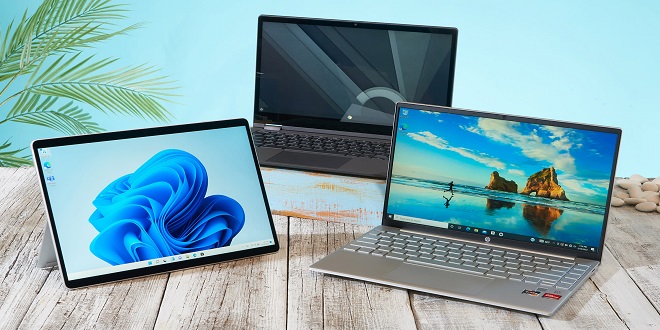How to Choose the Best Laptop for Business
Before now, many people did not think much about the laptop they bought for business purposes. So long as there’s a laptop, the work will get done; this was the mentality. But, as technology advances and with recent world occurrences, more and more businesses realize the importance of having a work laptop.
From big corporations to SMEs to solopreneurs and freelancers, there’s never been a better time when everyone paid attention to their laptops. A business laptop today is what stands between you and the ability to do your job. A good laptop is what will enhance your work output level.
However, most people still focus on the price when buying a laptop for business or to play amazing Parimatch games like those you will find when you click here. While price is a necessary determiner of the laptop you can afford for business, it’s not the sole determiner. There are other criteria to put into consideration before choosing a business laptop.
What You Should Look Out for When Choosing a Business Laptop
There are a million laptops in the market today. Anyone can easily pick one laptop and move forward. But, when the laptop you’re buying is necessary for your business, any laptop isn’t what you need.
Below are the necessary things to do before choosing your business laptop.
1. Battery Life
A business laptop should last between 8 to 10 hours. Each day, there are eight working hours, so your business laptop should be able to serve you to this extent. As a business owner, you’ll need your laptop for various activities during work hours. Having a laptop that can’t last this long will affect your workflow.
2. Device Processing Speed
Most business owners don’t realize this, but the processing speed of the laptop you’re buying should matter to you. If your laptop budget is high, the processor shouldn’t be less than the latest Intel Core CPU generator. At least your business laptop should have a fast Intel Core CPU for maximum performance.
3. Display Screen
Most businesses go for laptops with 14-inch upwards. Going for an 11th laptop is not ideal for businesses. Widescreen laptops are better for businesses as images and objects before the screen look larger and easily accessible.
4. Hard Drive
Your business laptop is where you store valuable business data. Make sure the laptop you choose for business has a large storage capacity. Instead of opting for a laptop with a hard disk drive (HDD), go for a solid-state drive.
They’re faster and will serve you better. Also, make sure that the RAM of your laptop is at least up to 8GB RAM. Anything below 8GB is not ideal for a business laptop.
5. Laptop Portability
With more and more businesses embracing the work-from-home practice and remote work, it’s now essential to have a portable work laptop. Before making that purchase, ask yourself, “will this laptop be needed for in-office and out-office activities?” This way, you can easily carry your work laptop to work from anywhere.
Portable laptops are every worker and business owner’s joy. It saves you the stress of carrying heavy devices everywhere. With this, your business laptop shouldn’t weigh more than 4 pounds. Anything over this can become a burden when you need to move it around.
6. Laptop Connectivity
In most modern laptops, you’ll find out that they don’t have enough connection ports installed in the laptop. Your business laptop should have a USB, an HDMI, an SD card reader, VGA, and DVI support. The essence is that at some point, you’ll need some of these connection ports. If possible, get a laptop that has more than one USB port.
7. Operating System
Go for laptops with modern operating systems; it’s essential for the smooth flow of work and the security of information contained in your device. Avoid older operating systems like Windows 7 and 8, as they’re outdated and expose your device to cyberattacks.
Why You Shouldn’t Focus Entirely On Price When Buying Your Business Laptop
You might wonder why the price is not among the listed criteria for a business laptop in the above list. It’s because getting a laptop that’ll serve your business has little to do with price and everything to do with quality. If you find a laptop that checks all the criteria and is affordable, by all means, go for it.
But, when you set off to purchase a business laptop, remember that it’s also an investment in your business. The laptop you’re buying has the potential to affect the flow of your business. So, when you find a laptop that ticks all the boxes but isn’t cheap, go for it. It’s a business investment.
Conclusion
Before you go after that business laptop, don’t base your choice on what’s affordable. Base it solely on what will serve your business. After all, there’s a reason it’s a business laptop, not a personal one.
 Pagalsogns.me
Pagalsogns.me




